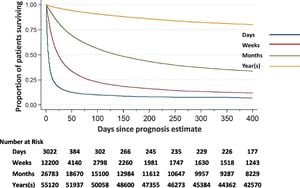WARSAW - Political tensions are palpable as Poland's President Andrzej Duda criticizes the ruling coalition led by Prime Minister Donald Tusk for failing to host significant US-EU and EU-Ukraine summits. This criticism coincides with Duda's own controversial meeting with former US President Donald Trump, stirring discontent among his party colleagues. Meanwhile, the specter of the Pegasus surveillance scandal looms large, raising concerns about political integrity and trust within the government.
On the third anniversary of the Russian invasion of Ukraine, Duda convened the National Security Council, which includes representatives from various government factions. During the meeting, Duda stated, "Strengthening our defense capabilities is a response to Russian imperialism. We are not only relying on others to defend us; we want to secure our own security." His comments reflect the growing emphasis on national security amid regional tensions, particularly with Russia's aggressive posturing.
Yet, Duda expressed dissatisfaction with Tusk's government, accusing it of neglecting opportunities to strengthen Poland's international alliances. He condemned the exclusion of presidential representatives from security discussions, arguing, "From the very beginning, I have worked to keep Poland's security issues out of political disputes." This sentiment highlights the fractured relationship between the presidency and the current government, which opponents claim doesn't prioritize national interests over political rivalries.
Relations are particularly strained following Duda's impromptu meeting with Trump, attended alongside other conservative leaders. Critics within Duda's own conservative party, Law and Justice (PiS), have expressed outrage, alleging Trump deliberately snubbed the Polish president, exacerbated by Duda's choice to meet with the former US leader without government backing.
This controversy is compounded by Duda's precarious position as the July presidential elections approach. With the PiS backing the candidacy of Karol Nawrocki, head of the Institute of National Remembrance, Duda, who has served two terms as PiS's candidate, cannot run again due to constitutional limitations. A recent poll by IBRiS indicates Nawrocki trailing Tusk's Civic Platform candidate, incumbent Warsaw Mayor Rafał Trzaskowski, who reportedly enjoys the backing of 32.5% of voters compared to Nawrocki's 26.5%.
The clash between Duda and Tusk extends beyond personal tensions; it reflects diverging perspectives on national security and the responses needed to face external threats. Tusk addressed the need for national unity during the National Security Council meeting and criticized PiS MP Mariusz Błaszczak for failing to recognize this necessity. Tusk remarked, "I presented the framework for national consensus on Ukraine at the National Security Council. The need for political unity among Poles... was understood by everyone. Only Mariusz Błaszczak did not understand." This indicates the tension within political ranks as Duda's criticisms resonate with some yet alienate others.
Meanwhile, lurking behind these political battles is the Pegasus surveillance scandal, which has shaken public trust and raised significant ethical questions about government overreach. Discussions surrounding this controversy have intensified following reports indicating the Polish government, particularly during the PiS's time in power, acquired the spyware, which enables near-total and clandestine surveillance of individuals’ mobile devices.
Urszula Wrzosek, a prosecutor, was among the first to reveal the scandal. She learned her phone had been targeted for surveillance, discovering it through alerts from Apple, marking one of Poland's first cases of what is now being referred to as “Pegasus-gate.” According to Wrzosek, the initial inquiry she sought after becoming aware of her phone being hacked was quickly shut down, leading to disciplinary action against her. She noted, "There was no single moment, no symptom indicating something was off.” Wrzosek’s revelations have fueled concerns about the extent to which the government utilized Pegasus to monitor political opponents and civilians alike.
This has cultivated fears of widespread surveillance and manipulation, particularly as forthcoming elections approach. Figures like Krzysztof Brejza, now serving as a Member of the European Parliament, were revealed to have been targeted during their election campaigns, exacerbated by the government's history of using technology to surveil opposition figures.
Political experts worry the continued fallout from the Pegasus scandal will compound existing challenges for Tusk’s administration, especially as the investigative committee set up to examine the incidents has yielded few concrete results. Political commentator Andrzej Stankiewicz stated, “The spying scandal had little to do with politics. It is about the interpersonal dynamics between various security agencies.” This highlights the complex relationship at play as Poland's intelligence community remains reticent to disclose significant details about surveillance operations, maintaining silence over their methods and intentions.
For Poland's citizens, the atmosphere is marked by uncertainty as they brace for the upcoming presidential election. The rising tensions between Duda and Tusk, coupled with the serious allegations of governmental misconduct, paint a picture of political discord. With civil liberties and trust at stake, the question remains whether the new administration will pursue accountability amid growing scrutiny.
Overall, as Poland navigates these turbulent waters of political schism and national security concerns, citizens are left questioning the future of governance and integrity within their political system. Will the Pegasus ramifications lead to reform, or will they be sidelined by the forthcoming electoral battle, overshadowed by partisan disputes? Only time will tell.



